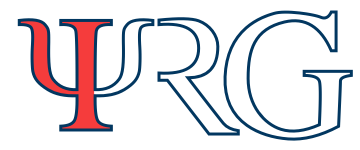Congratulations to Bo Peng and Jeremy Lehner for passing the departmental second-year exam. Bo presented his work on anisotropic exchange splittings in transition-metal-doped II-VI semiconducting nanocrystals. Jeremy presented his work on geometry optimization, discussing a modification to the rational function optimization for transition state optimizations.
Bo and Jeremy passed the departmental second year exam
Three new group members
The Li group welcomes three new graduate students to the group: Joshua Goings, Patrick Lestrange, and David Lingerfelt. Josh comes to us from a land not so far away: Seattle Pacific University. Josh has a Bachelor of Science degree in Chemistry as well as in Biochemistry with a minor in biology. Patrick traveled a greater distance, joining us from York College in Pennsylvania where he obtained his Bachelor of Science degree in Chemistry. David also joins us from the East Coast were he completed his Bachelor of Science degree in Chemistry with a minor in mathematics at the University of North Carolina at Asheville.
Sara Tweedy joins the group as part of the Amgen Scholars program
The Li group welcomes Sara Tweedy, an undergraduate from Harvey Mudd College, to the group. Sara joins the group as part of the Amgen Scholars Summer Research Program in Science and Biotechnology. The program “provides hundreds of selected undergraduate students with the opportunity to engage in hands-on research experience at some of the nation’s leading educational institutions.” During the 9-week program, Sara will study the effects of charging and counterions on the electronic structure of CdSe and ZnO quantum dots.
Joseph passes his general exam
Congratulations to Joseph May for passing his third-year general examination. Joseph presented his work “Manipulating the Optical and Magnetic Properties of Zinc Oxide Quantum Dots”. Joseph is now a doctoral candidate and is free from worrying about exams until he defends his dissertation in a couple of years.
Farewell, Wenkel

Today, the Li group says farewell to Dr. Wenkel Liang, who successfully defended his Ph.D. dissertation titled “From Geometry Optimization to Time Dependent Molecular Structure Modeling: Method Developments, ab initio Theory and Applications” last month. Wenkel joined the research group in 2004 and has worked on numerous application and development projects resulting in 18 publications with Prof. Li, a group record! Wenkel will be missed, especially for his technical savvy, having been the group’s expert Gaussian coder and administrator for the chemistry department’s computer clusters. Wenkel will return home to Chengdu, China for a couple of months to visit friends and family. In July, he heads to Simulations Plus Inc. in Lancaster, California to begin work on applications using artificial neural networks ensembles (ANNE).
Erica, Phu, and Feizhi pass their second-year exam
Congratulations to Erica Chong, Feizhi Ding, and Phu Nguyen for passing the departmental second-year exam.
Christine Isborn to be an assistant professor at UC Merced
Congratulations to former graduate student Christine Isborn who will start as an Assistant Professor of Chemistry at the University of California, Merced. Christine graduated with her Ph.D. from the group in May of 2009. Most recently, Christine has been a postdoctoral researcher for Todd Martinez at Stanford University. Christine is Xiaosong’s first student to graduate with a Ph.D. and the whole group congratulates her and wishes her luck with this new endeavor.
For more information on Christine and to learn more about her up-and-coming research group, visit her website.
Wenkel successfully defends his dissertation
Congratulations to the newly-minted Dr. Wenkel Liang who successfully defended his Ph.D. dissertation titled “From Geometry Optimization to Time Dependent Molecular Structure Modeling: Method Developments, ab initio Theory and Applications”. Wenkel will continue with his work in the group for the remainder while he considers job prospects in industry.
Jane wins the Dean’s Medal
Jane Hung, an undergraduate researcher in the Li group, has won the very prestigious Arts and Science’s Dean’s Medal for the Natural Sciences. Congratulations Jane!
Ryan wins a Mary Gates Research Scholarship
Ryan McMorris, an undergraduate researcher in the Li group, won a very competitive Mary Gates Research Scholarship. The scholarship is “intended to enhance the educational experiences of undergraduate students at the University of Washington while they are engaged in research guided by faculty.” The scholarship provides students with financial support of $4000 over two quarters. Ryan will use this funding to continue his work of modeling the electronic structure properties of core/shell CdSe/CdS quantum dots to gain insight into the optical properties of the materials for potential use in photovoltaic devices.
